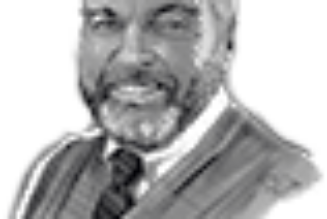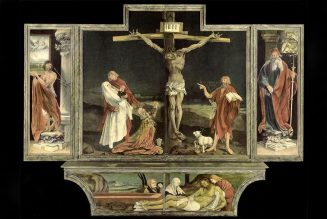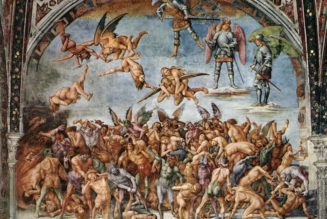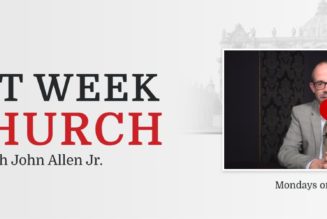
I will confess that one of the biggest laughs I’ve had in the last several months was occasioned by a recent article in The New York Times by Norimitsu Onishi. In this lengthy piece, the author tells us that the current political and cultural leadership in France, very much including President Emmanuel Macron, is alarmed at the rise of “American-style woke ideology,” which is effectively undermining French society and fomenting violence. Why, you are wondering, would this produce laughter? Well, what we call “woke” thinking in our American context was almost totally imported from French intellectuals who flourished in the second half of the twentieth century. One thinks of Jean-Paul Sartre, Jacques Lacan, Jacques Derrida, Julia Kristeva, and perhaps especially of Michel Foucault. The thinking that was originally shared in Parisian coffeehouses eventually made its way into the university system of Europe and then, especially in the seventies and eighties of the last century, into the world of American higher education. Finally, in very recent years, much of this thinking has poured out onto the streets in the form of “wokeism.” In the measure that it is threatening French society—as indeed I think it is—the phrase “the chickens have come home to roost” springs rather readily to mind.
In order to make this plain, I should like to concentrate on the one French theorist that has had the greatest impact on the formation of the “woke” mentality—namely, Michel Foucault. When I commenced my doctoral studies in Paris in 1989, just five years after Foucault’s death, the philosopher’s owlish face looked out from every bookstore window in the city. It was simply impossible to avoid him. Foucault is perhaps best characterized as a twentieth-century disciple of the influential German thinker Friedrich Nietzsche. Famously declaring that God is dead, Nietzsche denied the objectivity of epistemic or moral truth and saw human life as a ruthless power struggle. Decrying Christianity as a “slave morality,” the pathetic attempt of the weak to shame the strong, Nietzsche called for the Ubermensch (the over-man or the super-man) to assert his will to power. In a universe void of objective moral values, the Ubermensch is to embody his own values and to declare his dominance.
Foucault thoroughly embraced Nietzsche’s atheism and hence denied any objective grounding to moral values. Instead, he interpreted these, whether espoused by Church or secular society, as the means by which powerful people maintained themselves in positions of power. Like Karl Marx and Sigmund Freud, Foucault was, accordingly, a master of suspicion, an unmasker of what he took to be pretentious claims to truth. He unfolded his Nietzschean project in a series of massively influential books from the sixties and seventies: Madness and Civilization, The Birth of the Clinic, The History of Sexuality, and Discipline and Punish. In all of these texts, he engaged in what he called an intellectual archeology, digging underneath the present consensus on matters such as the nature of madness, sexual morality, the legitimacy of incarceration, etc. in order to show that in previous ages, people entertained very different ideas in all of these arenas. The upshot of this move was to demonstrate that what appeared to be objective moral principles and high-sounding language were, in fact, the ever-shifting games played by the powerful.
Now the legion of Foucault’s disciples in the Western academy continued this archeological project after their master’s death, looking especially into issues of colonialism, gender, homosexuality, and race. And what they found in all these areas, unsurprisingly, was a Nietzschean power struggle between oppressors and oppressed. Once awakened to this reality (woke), they endeavored to foment confrontation between the powerless and the powerful, and here the influence of Marx cannot be overlooked; indeed, one of Foucault’s greatest mentors was the French Marxist Louis Althusser. Appeals to order, social norms, objective ethical values should be swept aside, for they are but a camouflage for the real social dynamics. Vive la revolution! I trust that much of this is sadly familiar to any American who endured the worst of 2020’s social upheaval.
Now, are there real injustices that obtain within our society at all levels? Of course. Should the Church and the political establishment be committed to fighting injustice wherever it appears? Of course. But is this Foucaultian “woke” philosophy, which holds to an antagonistic social theory, which deconstructs language, which denies the objectivity of moral norms, and which sees reality simply as an incessant struggle between oppressor and oppressed, the answer? Of course not. And perhaps we should be encouraged by the French alarm at the emergence of “wokeism” in their midst, for now the very society that produced the intellectual virus might join the fight against it.
Join Our Telegram Group : Salvation & Prosperity








